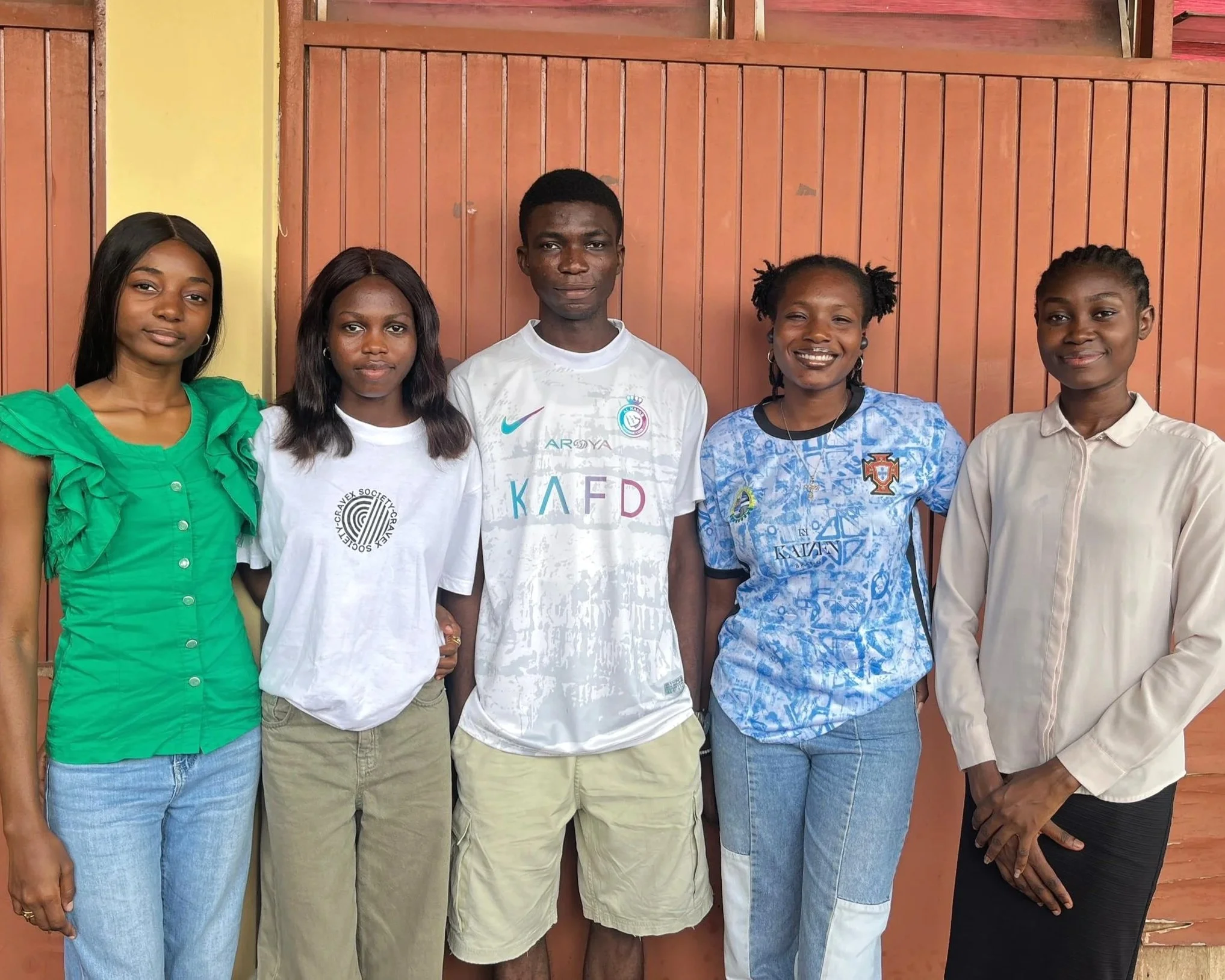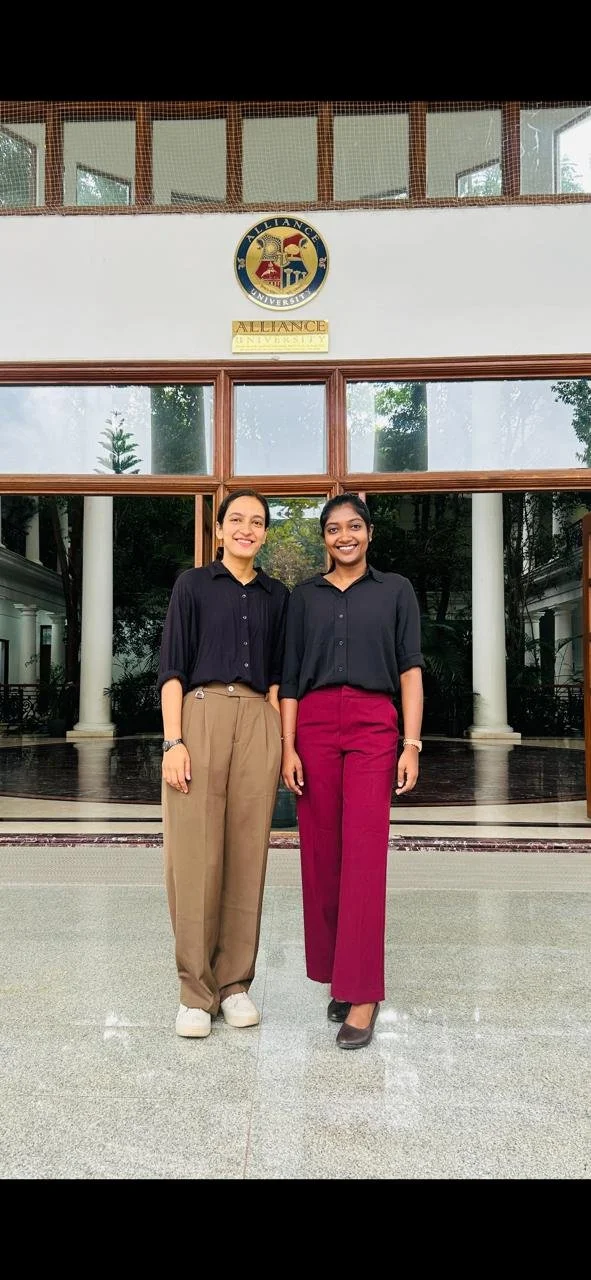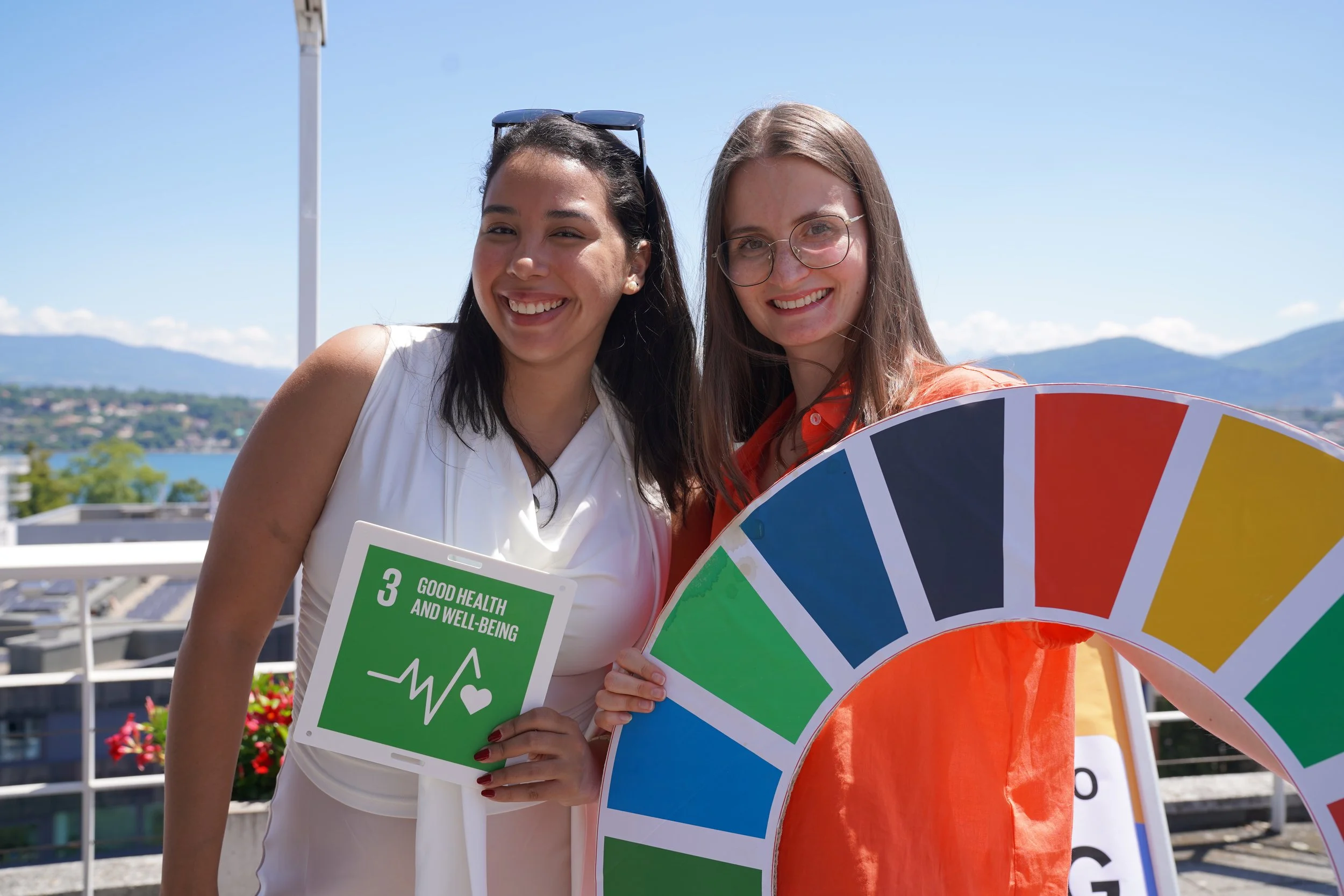From local wins to global impact
In the past few months, students worldwide have been buzzing with creativity at SDG innovation events across our network. The most impactful ideas were celebrated locally and selected to represent their regions in the global finals.
From October 10–13, each finalist team will bring their brightest solutions to Geneva at the SDG Olympiad Award Event, where they’ll showcase their work and compete for Global Prizes and Special Awards!
Meet the finalists.
-

University of Copenhagen
Community-Based Action Plan for T1D Children
A community-based action-plan that connects families, Lebanese Red Cross (LRC) staff, and safe storage sites to ensure insulin continuity during emergencies.
-
University of Geneva
SDG Data Navigator
The Health Data Navigator (HDN) is an AI-powered chatbot designed to provide instant, verifiable, and accessible information on SDG 3 health indicators. Built on official data sources, the tool enables journalists, researchers, and policymakers to quickly access validated statistics and visualizations to counter misinformation in real-time.
-

Technical University of Munich
Fishnergy
Fishnergy addresses the challenge of mounting fish waste and scarce electricity in coastal communities of Maluku, Indonesia. The solution transforms this waste into biogas, generating electricity to power cold storage hubs, extend fish shelf life, and cut carbon emissions.
-

Grigol Robakidze University Georgia (GRUNI)
Ertoba
Ertoba (meaning "unity" in Georgian) is an AI-powered language learning platform designed to preserve endangered Georgian languages: Mingrelian/Megrelian, Svan, and Abkhazian.
-

University of Lagos
Team Factflow
Student-friendly guidebook that simplifies weather, climate, and planetary health into a format that students can relate to, learn and enjoy reading.
-

United States International University
Wetlands4Wellness
Wetlands4Wellness is a youth-led, community-driven project focused on restoring the Ondiri Wetland in Kiambu County, Kenya, by integrating Nature-Based Solutions (NbS) with Indigenous Knowledge Systems (IKS).
-

Kwame Nkrumah University of Science and Technology
Peellnnova
Peellnnova is a Ghanaian health-focused start-up that transforms fruit peel waste together with wood waste into affordable, eco-friendly mosquito-repelling products to protect homes from mosquitoes and other insects which intend improves lives.
-

Masinde Muliro University of Science and Technology
Eco²- SHE
The Eco²- SHEis an innovative, sustainable sanitary product made from agricultural waste such as sugarcane bagasse and sorghum bagasse.
-

Tsinghua University
ComNergy
This is China’s first large network that connects over 10,000 unused graphics cards (GPUs) to provide fast, affordable, and eco-friendly computing power for AI projects. It helps GPU owners earn extra income while lowering costs for companies, researchers, and developers.
-

Global Challenges Track
Tafiti Research and Innovation Hub
A digital platform created to improve transparency, accountability, and citizen participation in aid-funded development projects across Kenya and Africa.
-

Alliance University
Green Materials
By transforming residues like orange peels into high-value materials, the initiative tackles major environmental challenges: nanocellulose aerogels for water purification (oil spills and wastewater), hydrogels for biodegradable biofilms to replace plastics, and carbon aerogels for CO₂ capture to mitigate climate change.
-

Global Challenges Track
Rise 30
RISE30 mobilizes young people into “local climate cells,” empowering them to track deforestation, protect forests and water towers, and connect their actions to national policies and global platforms such as COP30 and Amazon protection.
-

Global Challenges Track
Cycle Charge Power
CycleCharge Power is a human-powered clean energy solution designed to address unreliable electricity access and costly power alternatives in Kenya. By recycling old car alternators and lead-acid batteries from garages and scrap yards, the system converts kinetic energy from pedaling a bicycle into stored electricity, which can then power household appliances.
-

Yunnan University
AquaNovate
The Sustainable Saline Purifier (SSP) is an innovative, low-energy water purification system utilizing capacitive deionization technology. Its core innovation lies in the utilization of biological waste (e.g. straw, biological residue, cigarette butts) as a key raw material for purification components.


